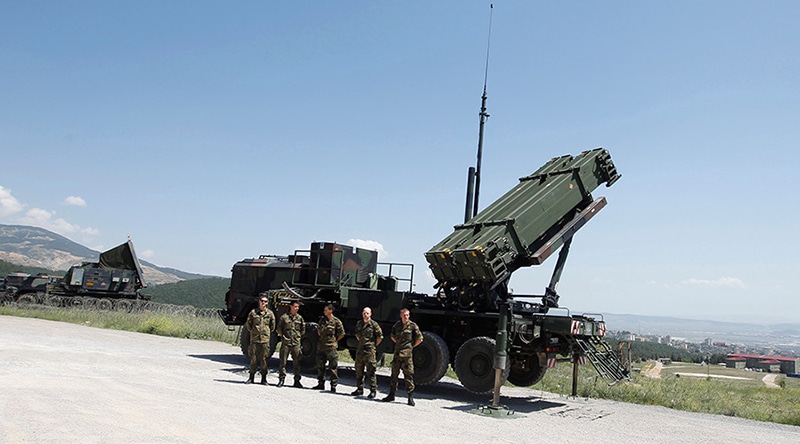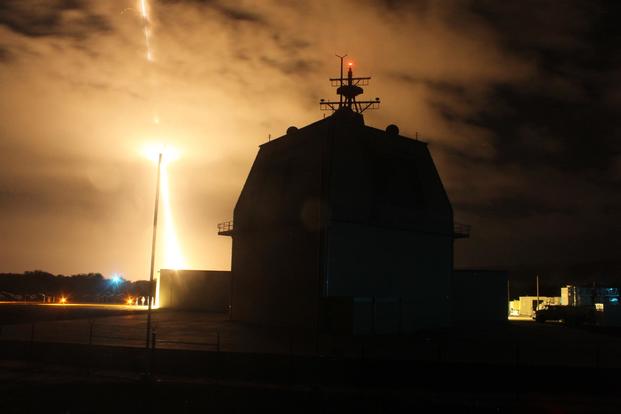The American defense information site Defensenews.com asked several personalities from the Western defense environment to express their vision and expectations for the coming decade. Among them is the Polish Minister of Defense, Mariusz Błaszczak, and the positions he expressed, as well as the objectives announced, are in profound contradiction with the vision proposed by the French president for several weeks.
Let us recall that while France traditionally preaches for the strengthening of European strategic autonomy and to reduce technological and operational dependence on the United States, French President Emmanuel Macron, clearly toughened his speech by calling for Europeans to take charge of their defense issues, in and around Europe. According to him, it is dangerous to delegate the keys to European Defense to Washington, because the agenda of the White House can significantly diverge from that of European nations.

It seems, on the other hand, that the Polish positions are quite different. Indeed, Mariusz Błaszczak clearly defined Warsaw’s roadmap for the next decade in the field of Defense, and this route passes through the United States. Thus, the Polish minister did not once refer to Europe's Defense in his letter, while he cites NATO 5 times, and 6 times the United States or their forces. The main objective announced is to meet all of Washington's requirements to promote military rapprochement between the two countries. Thus, Warsaw will devote more than 2,5% of its GDP to La Défense in 2030, compared to 2% today, will increase the size of its forces by notably creating a 4th mechanized division, and above all, will considerbuy American equipment. It can thus be noted that the only equipment named in this document is Lockheed's F35.
Beyond questions purely linked to Defense itself, the positions of the Polish government can be explained by two factors: Brexit and German-American tensions. Indeed, it seems that Warsaw has decided to position itself as Washington's favorite in the European Union, a role hitherto held by London, and which often led to blockages and institutional difficulties in Brussels. It is therefore not surprising to see Poland among the most fervent defenders of opening PESCO to American defense companies. But Polish ambitions go beyond, and trying to take away the central position in NATO which Germany has held until now, pretexting the trade tensions which today oppose Washington and Berlin, and the lack of German investment in defense spending, strongly criticized by President Trump. In addition, Poland considers that its geographical position, in contact with Belarus and Ukraine, and adjoining the Kaliningrad enclave, justifies concentrating a large part of the American forces positioned in Europe there.

These Polish positions can be explained by several factors. From a defense point of view, Warsaw and Moscow remain very antagonistic, and Poland is today at the forefront in Europe in carrying the message of the threat that the Russian armies represent for Eastern Europe. In addition, Poland expects to be rewarded for the loyalty it shows towards the United States, particularly on the economic level. Finally, we note that the Polish government of President Andrzej Duda has, on numerous occasions, expressed its hostility towards the European Union, particularly due to the latter's criticism of certain anti-democratic measures taken by the Polish authorities. In this area, support from the United States would therefore be likely to influence Brussels' positions.
Whatever the case, it seems clear that Poland does not intend to play the La Défense Europe card. It is also not the only one, particularly in the countries of Eastern Europe. The French president will have to, from Los, show much more than persuasion to succeed in getting certain European countries to take more European and less “Atlanticist” positions than today. But the task will be difficult, and many people even consider it impossible. One thing is certain, France will have to blatantly demonstrate the interest of the positions it defends, in order to hope to begin a process of change. And this will require a significant strengthening of its armed forces and its defense industry.
